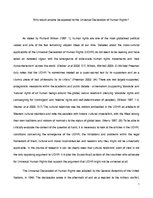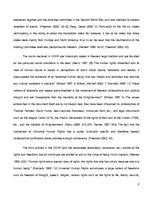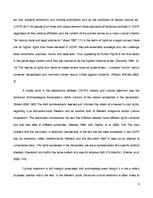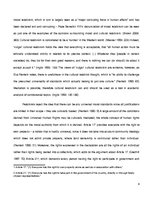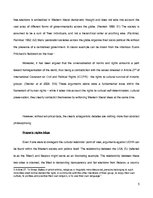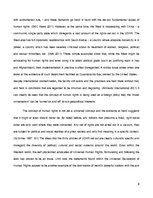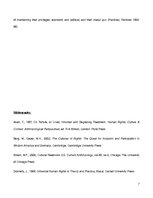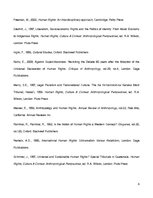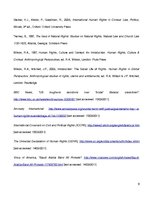These simple examples show that, while the West might be advocating for human rights and even using it to attain political goals (such as justifying wars in Iraq and Afghanistan), their implementation in practice is often disregarded. A similar issue arises when one looks at the existence of such detainment facilities as Guantanamo Bay, owned by the United States, - despite international condemnation, the facility still exists and the prisoners are held there without trial, and held in conditions that are regarded to be inhuman and degrading. (Amnesty International 2011) It can clearly be seen that the concept of human rights is being used as a foreign policy tool; the ‘moral universalism’ can be ‘turned on and off’ to suit geopolitical interests.
The concept of human rights is not yet a universal concept and the evidence at hand suggests that it might or even should never be. As noted before, any notions that presume a fixed, right social order are only valid where they were conceived. Any set of rights are not acted out in a vacuum, they are subject to political and social realities of a given society and only find meaning in a specific context. (Schirmer 1997: 181) The ideas that the thirty articles of UDHR set out are clearly culturally specific and disregard the diversity of political, cultural and social systems around the world. Even within the Western world, the self-proclaimed advocates of Universal Human Rights, formulating and following the laws has proven to be an issue. Until now, the statements found within the Universal Declaration of Human Rights appear to be another example of the domination of world’s powerful nations with the aim of maintaining their privileges, economic and political, and their status quo. (Panikkar, Panikkar 1982: 86)
…
As stated by Richard Wilson (1997: 1), human rights are one of the most globalised political values and one of the few remaining utopian ideas of our time. Debates about the cross-cultural applicability of the Universal Declaration of Human Rights (UDHR) do not seem to be ceasing and have taken on renewed vigour with the emergence of wide-scale human rights movements and ‘new humanitarianism’ across the world. (Steiner et al 2008: 517; Wilson, Mitchell 2003: 2) Michael Freeman duly notes that the UDHR “is sometimes treated as a quasi-sacred text by its supporters and as a clumsy piece of bad philosophy by its critics.” (Freeman 2002: 34) There are two largely-supported, antagonistic viewpoints within the academic and public debate - universalism (supporting ‘absolute’ and ‘natural’ rights of all human beings around the globe) versus relativism (denying ‘absolute’ rights and campaigning for ‘contingent’ and ‘relative’ rights and self-determination of peoples).
Atsevišķas atsauces nekvalitatīvas.

